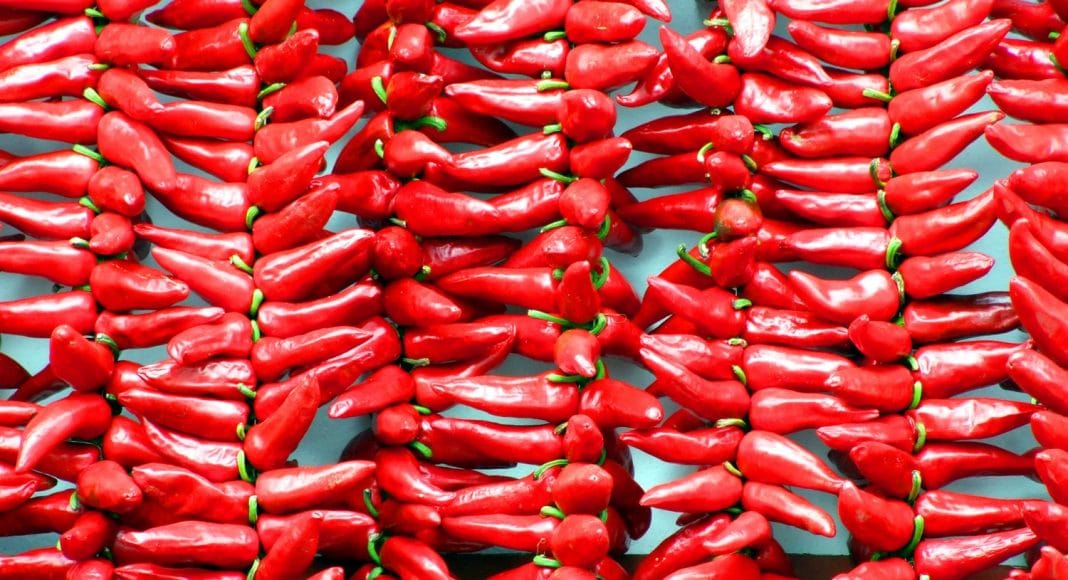Do you ever feel a little…stoned after eating spicy foods? Like both your mouth and brain is on fire?
Thanks to scientist and admitted foodie Leidamarie Tirado-Lee, we know why. In the magazine Helix, he explains that capsaicinoids, the compounds which give spicy foods their spiciness, has nothing to do with tastebuds and everything to do with physical sensation.
In essence, when the capsaicinoids hit the tongue, a message — similar to that of being near a hot fire — is sent to the brain, essentially tricking it into thinking that the mouth is being burned and needs assistance, STAT! (It’s the same thing that happens when you touch your eye after handling a hot pepper, which is why you should, um, never do that). The brain responds by release endorphins.
Endorphins are the body’s natural way of relieving pain by blocking the nerve’s ability to transmit pain signals. Additionally, the neurotransmitter dopamine, responsible for a sense of reward and pleasure, is also released. In essence, for some people eating large amounts of spicy food triggers a sense of euphoria similar to a “runner’s high”.
That certainly explains this guy, who must be on the world’s longest high.
The Fresh Toast‘s Richard Faulk explains how marijuana can be used to treat mouth burn, citing a 2007 study from UCSD’s Center for Medical Cannabis Research, in which marijuana’s potential to ease neuropathic pain was tested.
To simulate the pain associated with chemotherapy or HIV/AIDS, researchers injected participants with capsaicin—which, as you may know, is the chemical that puts the heat in hot peppers. The trial was a success: Cannabis produced a “significant,” if “modest,” improvement in pain.
Faulk, who is not a doctor, recommends treating food-induced mouth irritation by applying THC oil directly to the palate and tongue. “They have THC receptors (I’ve already checked), so it can’t fail,” he notes. “Unless your oil is too strong, or you lose your cool and apply too much.”
-
Related Story:Watch This Guy Bong Rip The World’s Hottest Pepper
As most experts figure, cannabis alleviates the perception of pain not at the source but in the brain. “In that case,” he says, “you’ll just have to wait the full time for the physically soothing effect to set in. Mercifully, though, you’ll be stoned about forty-four and a half minutes before that happens.”


